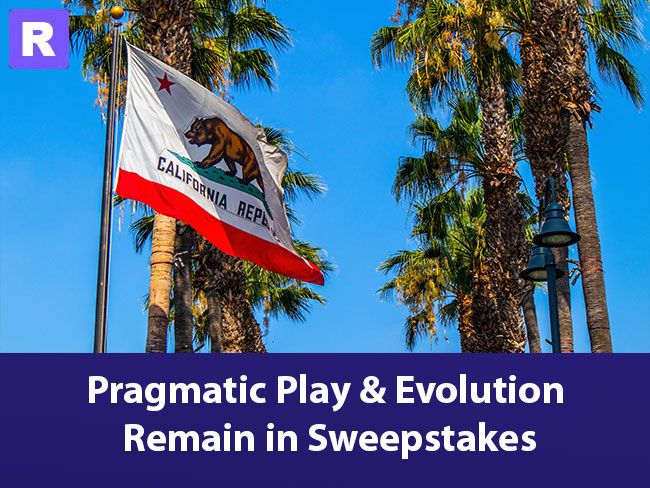The US sweepstakes casino sector is facing mounting legal challenges, which recently culminated in the withdrawal of two of the largest names in online gambling: Pragmatic Play and Evolution. Both companies have confirmed they won’t be supplying their games to sweepstakes platforms like Stakes.us any longer due to a lawsuit filed by Los Angeles City Attorney Hydee Feldstein Soto.
The civil enforcement action accuses Stake and its suppliers of operating an unlicensed online gambling platform disguised as a social gaming enterprise.
Civil Lawsuit Causes Exodus
At the center of the lawsuit is Stake.us, a popular sweepstakes casino recently known for its celebrity and influencer endorsements, including being promoted by rapper Drake. The lawsuit alleges that Stake’s use of dual digital currencies results in illegal gambling under California law. The platform uses gold coins for social play and sweepstakes coins, which can be redeemed for prizes.
Prosecutors are arguing that the system misleads consumers into believing they’re engaging in risk-free entertainment, when they are actually exposed to the same financial risks as gambling.
The case has targeted operators and suppliers. Pragmatic Play and Evolution were both named as defendants, along with Evolution subsidiaries like Big Time Gaming, Red Tiger, Nolimit City, and NetEnt. Hacksaw Gaming was also listed.
Supplier Withdrawal and Industry Repercussions
The immediate effect of the lawsuit is the disappearance of Pragmatic Play and Evolution game titles from Stake.us in California. The Gibraltar-based Pragmatic Play has stated it will cease licensing games to sweepstakes platforms across the US in jurisdictions where restrictions are not already in place. Evolution has stopped access to its products on Stake.us and is monitoring the regulatory situation.
This development may increase player interest in regulated alternatives and other gaming platforms that prioritize transparency and compliance. Some users have already turned to no KYC casinos for instant play, which allows access to casino games without verification checks. Although these sites operate outside of the sweepstakes model, they highlight how fast consumer preferences can change when there is legal uncertainty.
Potential Legislative Sweepstakes Ban: AB 831
The civil lawsuit comes at the same time as California lawmakers debate Assembly Bill 831 (AB 831), which proposes a ban on sweepstakes casinos. The bill has progressed through committees and reached the state Senate for debate. It has resulted in divides among tribes, regulators, and stakeholders.
Supporters of the bill, like the Yuhaaviatam of the San Manual Nation tribe, argue that sweepstakes casinos undermine legal tribal gaming operations and expose players to risks. Opponents, like the Sherwood Valley Band of Pomo Indians and other lobbyist groups, claim that regulation and taxation are the better approach as they can generate millions of dollars in revenue for California.
Publishers Clearing House has entered the debate, saying that a regulated sweepstakes model will deliver around $149 million in tax revenue each year. Lawmakers are now facing the challenge of balancing consumer protection and economic opportunities.
A New Regulatory Strategy
The Los Angeles lawsuit is similar to a broader trend where regulators are focusing on suppliers and not just the operators. This strategy considers content providers the “choke points” in the industry. Without games from software leaders like Evolution and Pragmatic Play, sweepstakes platforms lose their most popular titles, making it tougher to attract and retain players.
Experts suggest that suppliers, even publicly traded companies, will face greater reputational and licensing risks than the operators they serve. By cutting partnerships with unregulated markets, the companies reduce the risk of fines, lawsuits, and regulatory blacklisting.
The UK Gambling Commission has applied a similar strategy. They investigated Evolution in 2024 for allowing games to appear on unauthorized sites. Evolution responded to the pressure by ring-fencing its European operators, reducing revenue but ensuring compliance credibility.
Ongoing Industry Uncertainty
California’s lawsuit and the debate surrounding AB 831 have resulted in widespread uncertainty for millions of players who access sweepstakes casinos. Platforms like Stake.us may soon be inaccessible to California players. It also shows the risk for suppliers of operating in a legal gray zone during a period when US stakes are starting to open regulated iGaming markets.
Pragmatic Play’s withdrawal from sweepstakes may be a strategic move. It’s possible the company is preparing to push more into regulated states like New Jersey, Pennsylvania, and Michigan, where online gambling is legal. Evolution is already active in those states, but it is likely that they will take a similar view and prioritize regulated growth over restricted sweepstakes revenue.
The choices for players are also changing. Although some are advocating for regulated sweepstakes models that deliver tax revenue, others fear restrictions will drive players to offshore operators with little oversight. California’s stance may set the tone for other state policies, since the state has historically been a leader in iGaming legislation.


